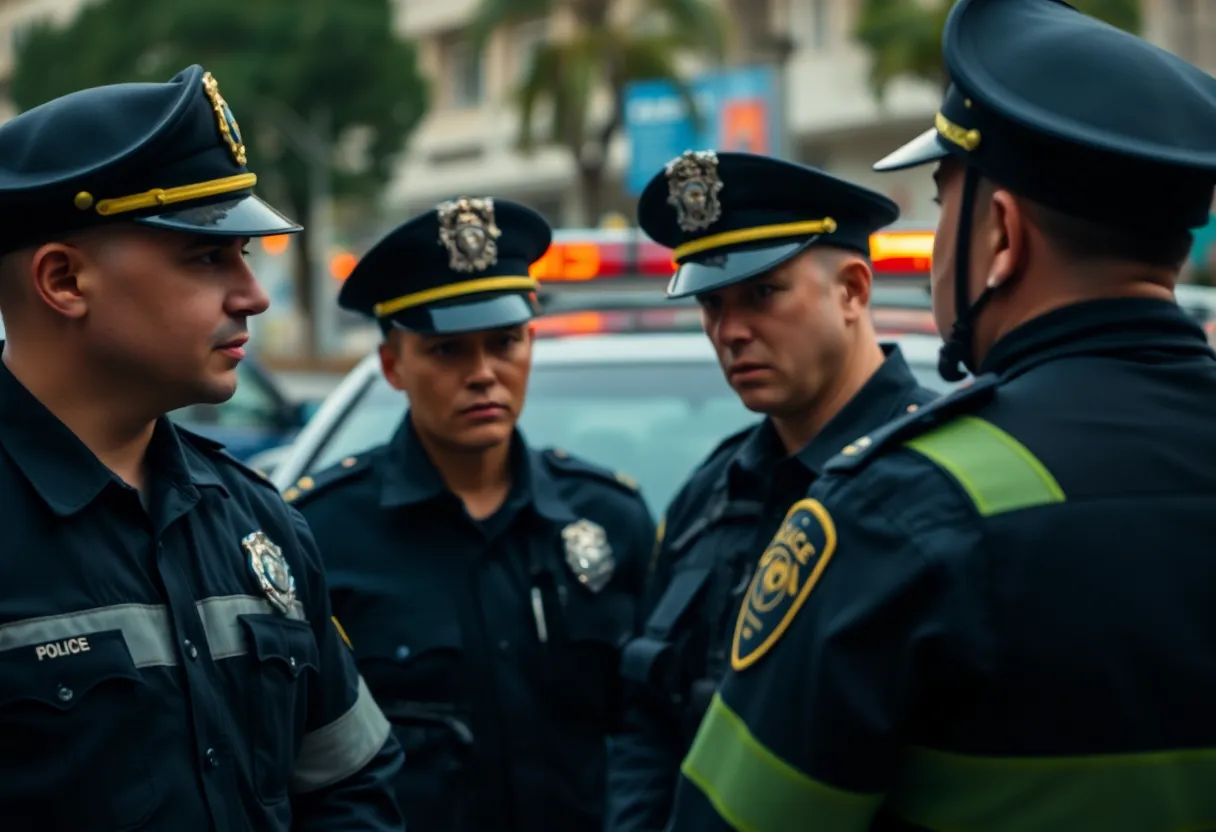News Summary
A federal judge has dismissed a lawsuit filed by Silvester Hayes against Dallas police officers who allegedly used excessive force during a mistaken arrest in 2021. U.S. District Judge Karen Gren Scholer ruled the officers were within their bounds of duty and protected by qualified immunity. Hayes plans to appeal, arguing that body-camera footage supports his claims of excessive force and racial profiling. The incident has raised concerns about police practices and their treatment of marginalized communities.
Dallas – A federal judge has dismissed a lawsuit filed by Silvester Hayes against Dallas police officers, who were accused of using excessive force during an arrest in 2021. U.S. District Judge Karen Gren Scholer ruled that the officers acted within the bounds of their duties and were protected by qualified immunity.
The incident occurred when Hayes, who was mistakenly identified as a suspect in a family violence case, was detained by police. During the ruling, Judge Scholer determined that the officers had probable cause to stop Hayes, citing his failure to signal a turn and his subsequent resistance to arrest. Hayes plans to appeal the decision, asserting that body-camera footage of the arrest substantiates his claims of excessive force.
During the arrest, which took place on October 16, 2021, Hayes alleged that he was racially profiled while driving to procure breakfast for his four children. His name was similar to that of a wanted suspect, leading to his detainment. As officers attempted to pull him from his vehicle, body-camera footage captured him crying for help. Although they later acknowledged their mistake in arresting the wrong person, Hayes was charged with resisting arrest and unlawful possession of a firearm. These charges were ultimately dismissed in December 2022.
Judge Scholer noted in her decision that the force used by the officers did not include harsher measures such as stun guns or punches, characterizing it as “relatively minor.” However, Hayes reported experiencing physical injuries during the arrest, including a dislocated arm. He stated that the experience was traumatic and made him feel like he was “fighting for my life.” He expressed significant personal consequences from the arrest, including the loss of his job, car, and home, leading to a change in his living situation and forcing his children to stay with their mother.
In the aftermath of the arrest, Hayes has voiced feelings of discomfort with law enforcement, stating he no longer feels safe calling 911 for assistance. He continues to struggle with the psychological and emotional ramifications of the incident while presently working at a high school and pursuing aspirations of becoming a football coach.
The city of Dallas has opted not to comment on the judge’s decision, and it remains unclear if the officers involved underwent any internal investigation following the incident. Throughout the court proceedings, Dallas police defended the arrest as constitutional and argued that Hayes mischaracterized his level of resistance during the incident. The case’s dismissal does not preclude Hayes from continuing to seek justice through an appeal, which he has indicated as his next step.
This incident highlights ongoing concerns regarding police practices and the treatment of individuals from marginalized communities, particularly regarding how law enforcement actions are perceived and handled in cases involving mistaken identity or potential racial profiling.
Deeper Dive: News & Info About This Topic
HERE Resources
Dallas Faces Pension Crisis as Deal is Rejected
Dallas Police Sergeant Arrested for DWI with Child Passenger
Additional Resources
- Dallas News
- NBC News
- CBS News
- Google Search: Dallas police excessive force
- Dallas Express
- Encyclopedia Britannica: Police brutality

Author: STAFF HERE DALLAS WRITER
The DALLAS STAFF WRITER represents the experienced team at HEREDallas.com, your go-to source for actionable local news and information in Dallas, Dallas County, and beyond. Specializing in "news you can use," we cover essential topics like product reviews for personal and business needs, local business directories, politics, real estate trends, neighborhood insights, and state news affecting the area—with deep expertise drawn from years of dedicated reporting and strong community input, including local press releases and business updates. We deliver top reporting on high-value events such as the State Fair of Texas, Deep Ellum Arts Festival, and Dallas International Film Festival. Our coverage extends to key organizations like the Dallas Regional Chamber and United Way of Metropolitan Dallas, plus leading businesses in telecommunications, aviation, and semiconductors that power the local economy such as AT&T, Southwest Airlines, and Texas Instruments. As part of the broader HERE network, including HEREAustinTX.com, HERECollegeStation.com, HEREHouston.com, and HERESanAntonio.com, we provide comprehensive, credible insights into Texas's dynamic landscape.




